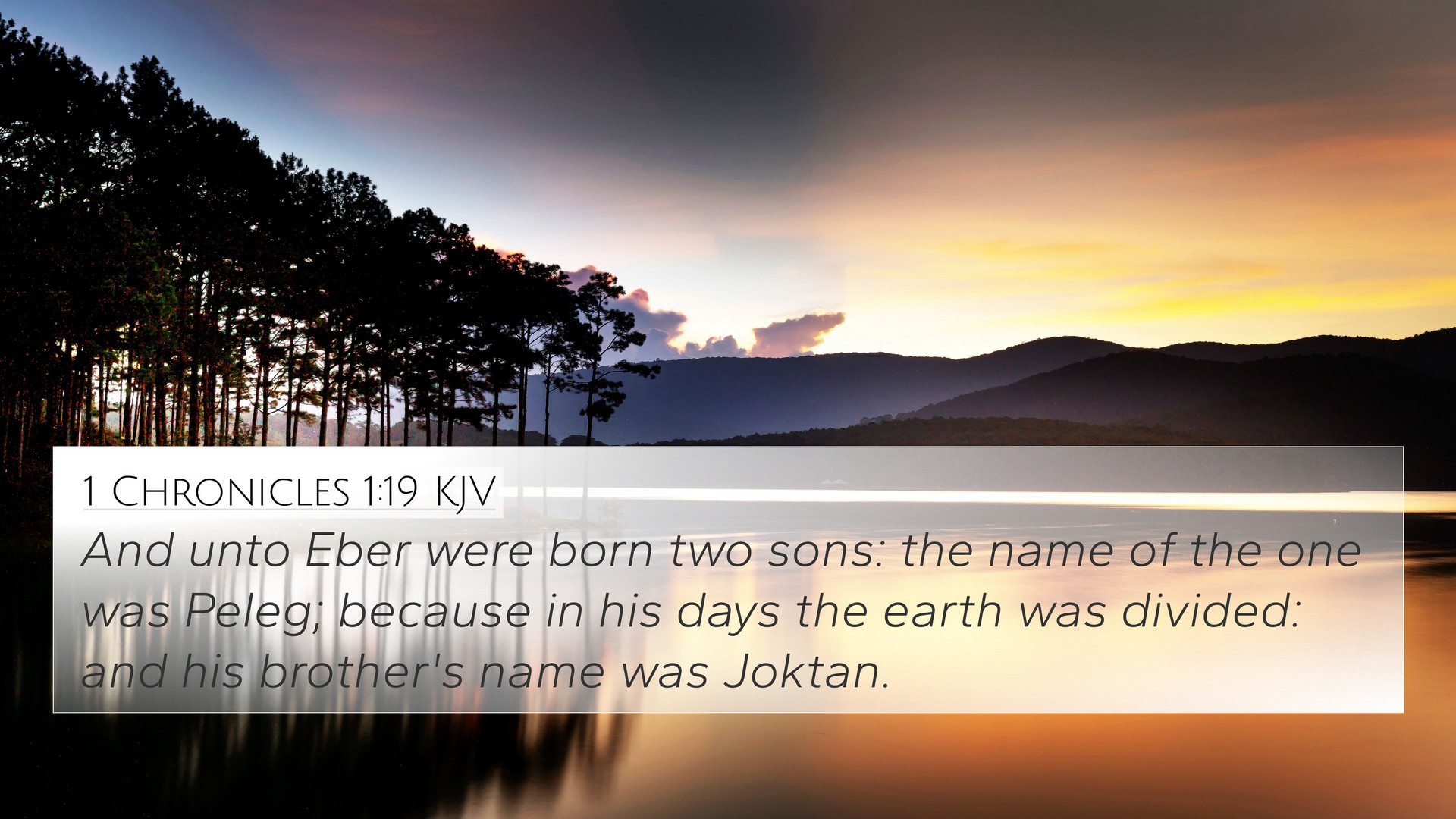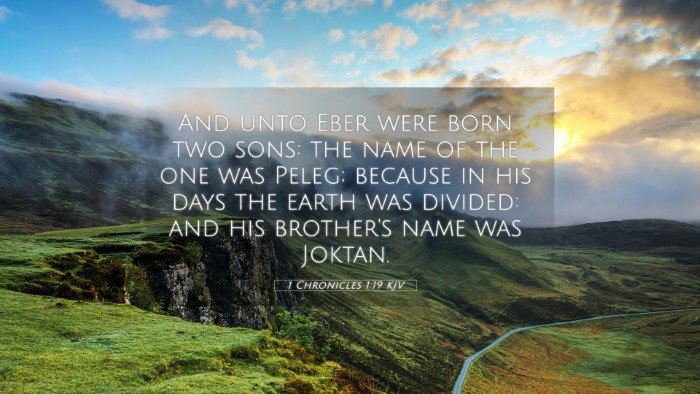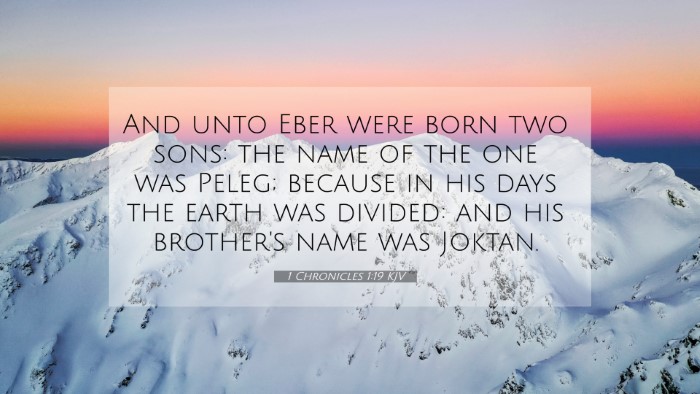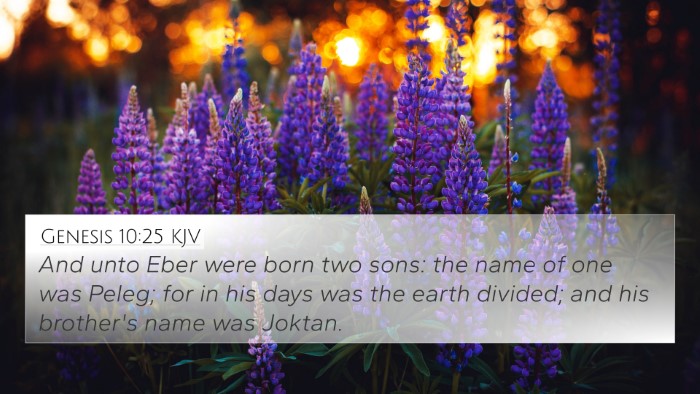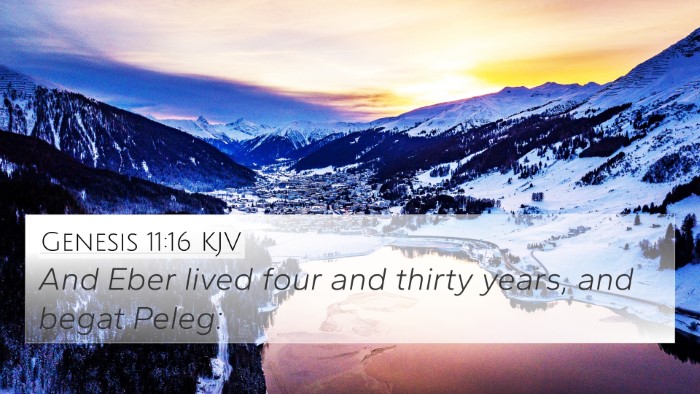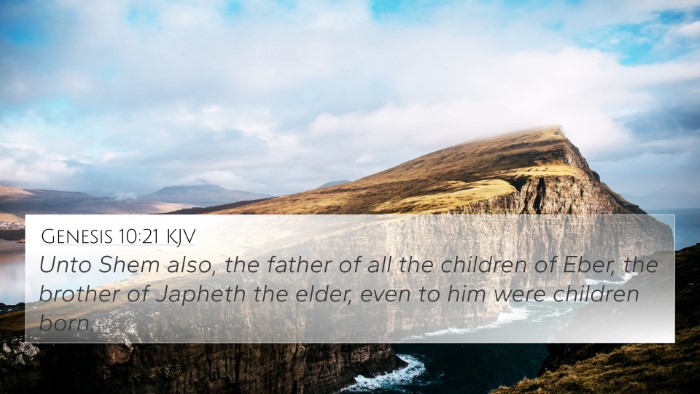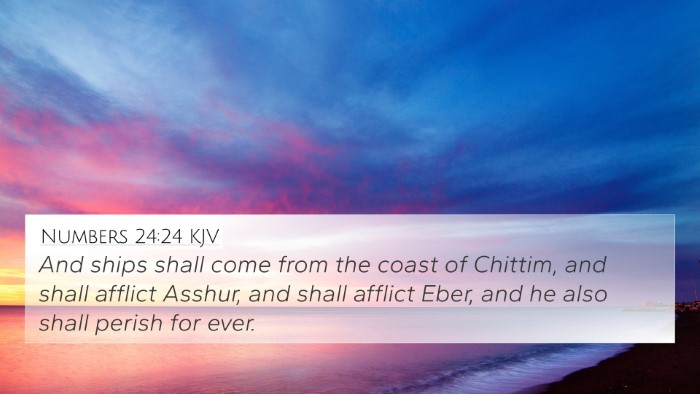Understanding 1 Chronicles 1:19
Bible Verse: 1 Chronicles 1:19 - "And to Eber were born two sons: the name of one was Peleg; for in his days the earth was divided; and his brother's name was Joktan."
Overview of 1 Chronicles 1:19
This verse belongs to a genealogical account in the Book of Chronicles, which lists the descendants of Adam through Noah and beyond. It highlights the lineage of Eber, a significant figure in the genealogy, and introduces his two noteworthy sons, Peleg and Joktan.
Key Themes and Meanings
- Genealogy: The verse is part of a broader record that emphasizes God's unfolding plan through specific bloodlines.
- Historic Context: Peleg’s name means "division," suggesting a pivotal event in history, likely relating to the division of humanity post-Babel.
- Divine Sovereignty: The division of the earth points to divine intervention in human affairs.
- Significance of Names: Understanding the meanings of the names within this verse and their implications for biblical history and theology.
Commentary Insights
Matthew Henry: Henry notes that Peleg's name indicates a significant division, possibly referencing the Tower of Babel. This division is not merely geographical but also cultural and linguistic, marking a turning point in human history. Henry emphasizes the importance of genealogies in establishing God’s promises and providential guidance through generations.
Albert Barnes: Barnes reflects on the idea that the name "Peleg" is appropriately associated with division, pointing out that this was the time when nations began to separate and diversify. He suggests that the lineage of Joktan carries significance in understanding the various nations that arose post-Babel.
Adam Clarke: Clarke presents an in-depth analysis of both names, emphasizing Joktan's role in the line of nations that descended from Eber. His commentary also highlights the literary structure of the genealogies in Chronicles, suggesting they are not merely historical records but theological narratives that reveal God’s ongoing relationship with humanity.
Cross-References
1 Chronicles 1:19 can be linked to several other Bible verses, illustrating the connections between biblical texts:
- Genesis 10:25 - "And unto Eber were born two sons; the name of one was Peleg, for in his days was the earth divided..."
- Genesis 11:9 - "Therefore is the name of it called Babel; because the Lord did there confound the language of all the earth..."
- Acts 17:26 - "And hath made of one blood all nations of men to dwell on all the face of the earth..."
- Hebrews 11:8-10 - Relating to the promise to Abraham, which ties back to Eber's lineage.
- Luke 3:35-36 - The genealogy of Jesus includes Eber, showcasing the continuity of God’s plan.
- 1 Peter 3:20 - Mentioning Noah and the division of peoples post-flood.
- Revelation 7:9 - Highlighting the multitude from every nation, possibly alluding to the initial divisions in Genesis.
Contextual Connection
This verse serves as a bridge to understanding the historical narrative within the Bible, where the division of the earth communicates God’s sovereignty over human history and His providence in movement across generations.
Applications of Cross-Referencing
Tools for Bible Cross-Referencing: The study of 1 Chronicles 1:19 emphasizes the importance of having tools for Bible cross-referencing, such as a Bible concordance or a Bible cross-reference guide. Understanding how to utilize these resources can deepen one’s study and appreciation of Scripture.
How to Use Bible Cross-References: Engaging in cross-referencing Bible verses encourages a more comprehensive understanding of thematic connections. For instance, examining how Eber's lineage relates to the promises made to Abraham can provide significant insights into God’s covenantal themes.
Conclusion
1 Chronicles 1:19 highlights crucial elements of biblical genealogy, historical events, and the overarching narrative of God’s relationship with humanity. By analyzing cross-references and employing thematic connections, readers can gain a richer understanding of the Scriptures and the continuity of God’s plan through generations.
Further Reflection
As one continues to study this passage, consider how the lives of Peleg and Joktan reflect the broader narrative of division and unity found in the biblical text. What does it mean for contemporary believers to recognize these divisions, and how can they bridge gaps in their own lives and communities?
